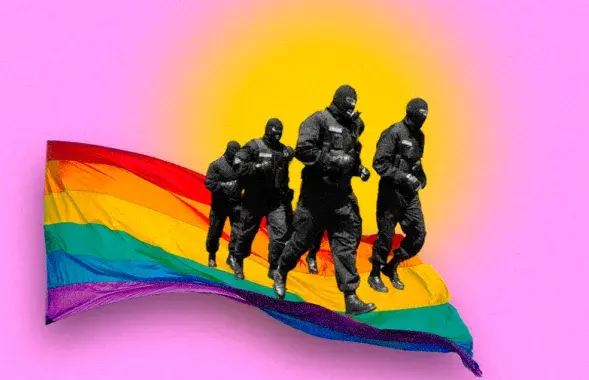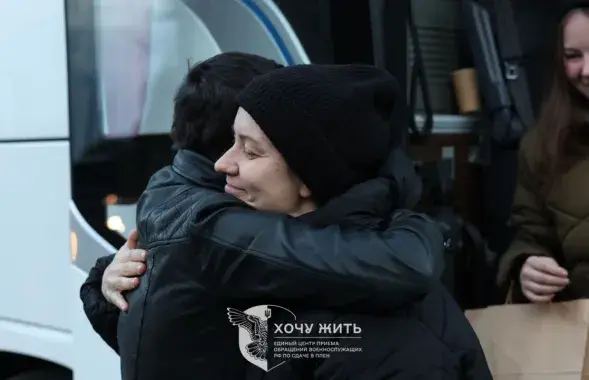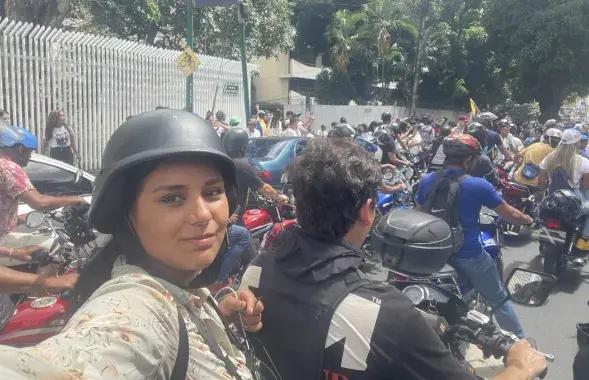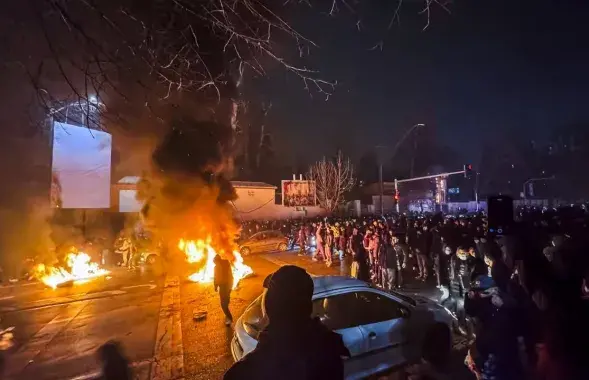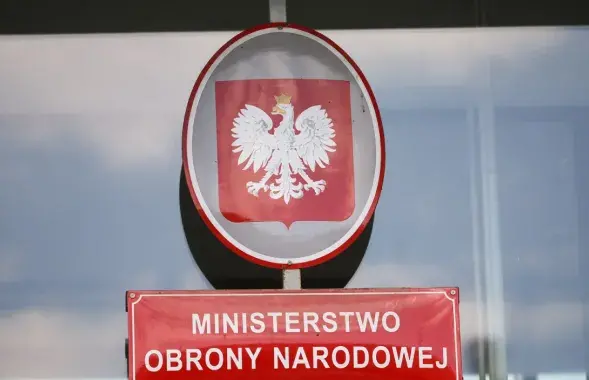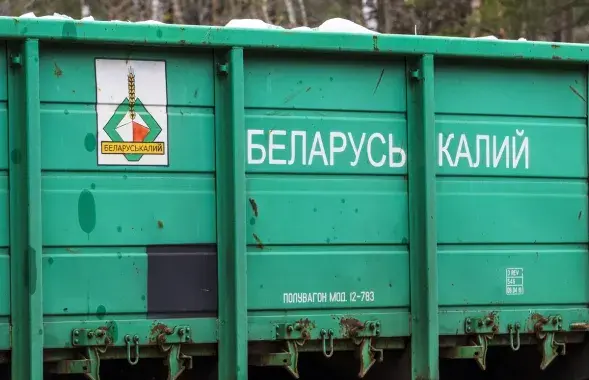No reverence for church: Orthodox and Catholic communities under pressure
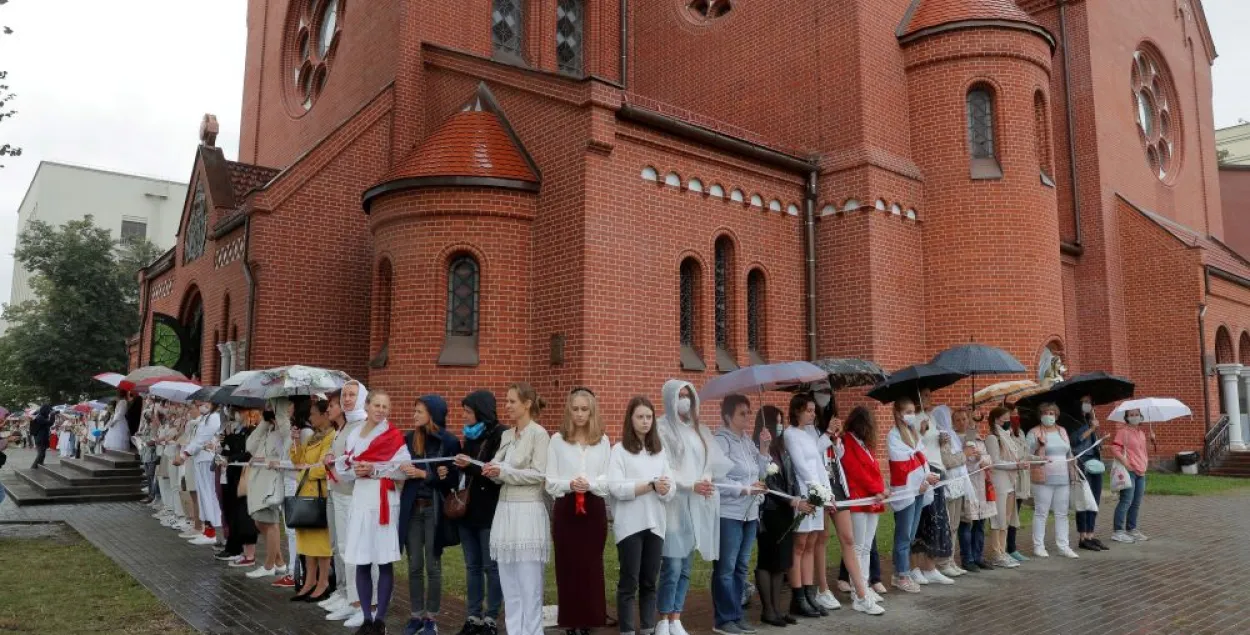
A protest in front of a church building in Minsk in 2020 / CNS / Reuters / Vasily Fedosenko
On the eve of his 65th birthday, Catholic priest Hienryk Akalatovič, sentenced to 11 years for “state treason,” sent a message from prison: “There is not a word of truth in my case.”
Accused of spying for Poland and the Vatican, the priest claims to have become a victim of political persecution — not only as a citizen but also as a representative of the Catholic Church.
The sentence handed down to Akalatovič is evidence of how the regime continues to apply repressive measures against representatives of Christian denominations. Euroradio recalls how the authorities persist in persecuting believers.
Sentences and “extremist” labels
During the first three months of 2025, the monitoring reports published monthly by the initiative Chryscijanskaja Vizija (Christian Vision) documented a new wave of religious repression in Belarus.
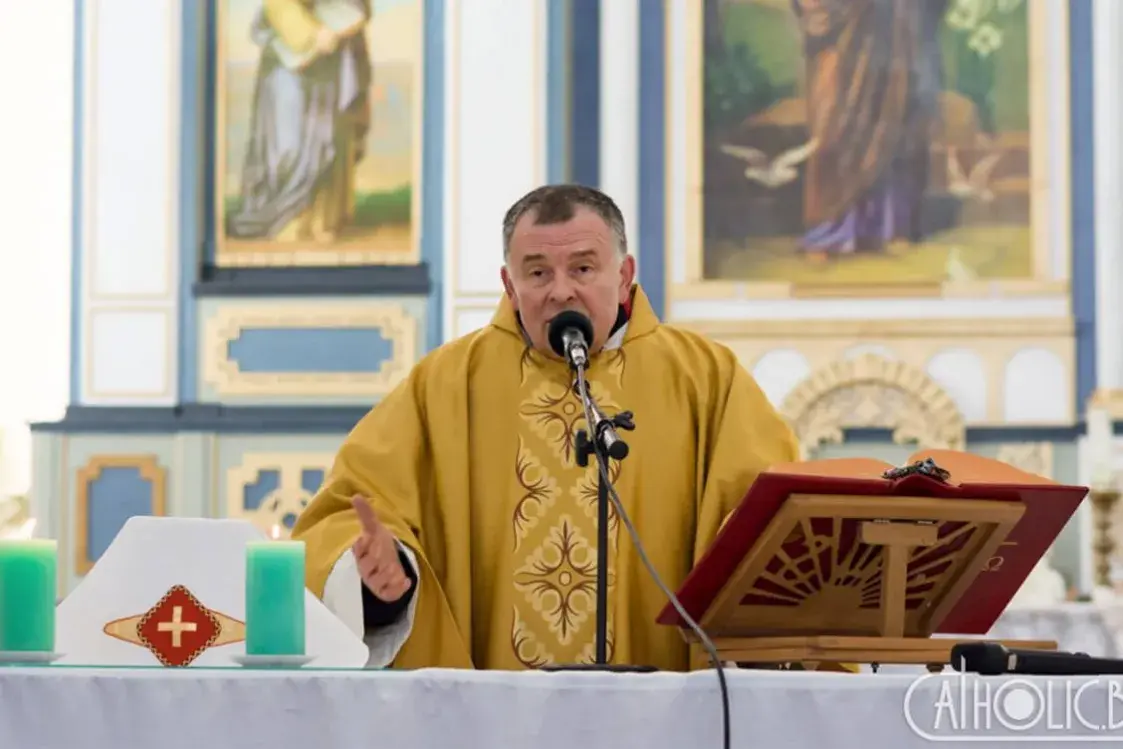
One of the striking examples is the criminal case against Daniel-Landsey Keyta, a singer in the choir of the Minsk parish of All Saints. He is charged under Article 342 of the Criminal Code for participating in peaceful protests. The trial is being held behind closed doors.
Father Andžej Juchnievič, the priest of a Catholic church in Šumilina, also remains in custody. His case involves serious accusations, which, according to human rights defenders, are used as a pressure tool. Previously, he had been threatened with fabricated charges for refusing to cooperate with the investigation.
Believers are also added to so-called “extremist lists”. In March, law enforcement designated Orthodox priest Alaksandr Kuchta as a member of an “extremist formation,” and his popular Christian blog Batushka otvetit was declared part of a destructive organization.
In January, the accounts of the Biełaruskaja Chryscijanskaja Demakratyja (Belarusian Christian Democracy party) were recognized as extremist despite their minimal activity and civic — not radical — nature.
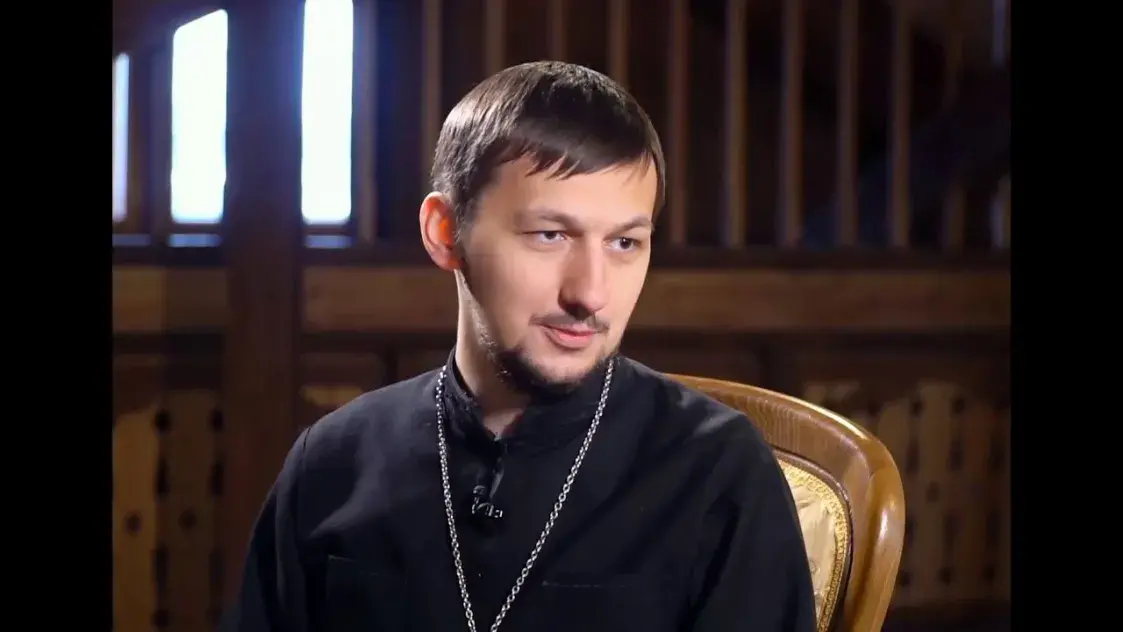
Repression of prisoners
Those already imprisoned are not spared. Preacher Mikałaj Chila, sentenced to four years, was added to the “extremist list.” His case drew a response from the European Union, whose representatives demanded his immediate release.
Catholic Mikita Yemialyanau, currently serving his sixth year in prison, received an additional sentence under Article 411 of the Criminal Code for disobedience. He has repeatedly been denied spiritual support and visits from clergy.
Continued pressure on Catholic priests
Pressure on Catholic clergy continues. In February, Father Dzmitry Malec was detained at the border due to subscriptions to “extremist” channels on his phone. He was sentenced under an administrative article.
Another alarming signal was the case of former hieromonk Alaksandr Tarasienka, which escalated from administrative arrest to criminal punishment for “insulting the president.
International response
The international community is actively responding to the repression of churches. The Conference of European Churches, uniting hundreds of millions of believers, expressed concern over the fate of Christians in Belarus.
Cases of persecuted clergy are being discussed in the Vatican. Organizations like Forum 18, as well as Western media, including Christian Network Europe News, cover the systematic violations of freedom of conscience.
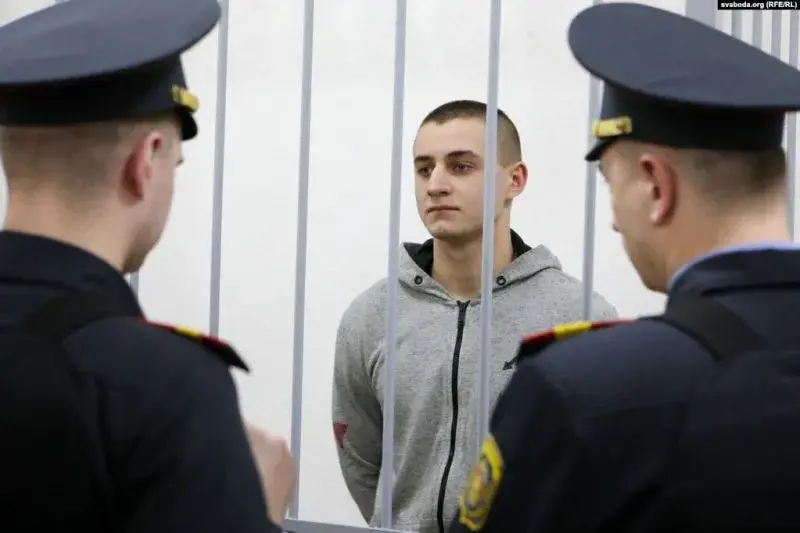
The accumulating effect of repression
Although repression against Christians is evident, it’s hard to say whether a new wave has begun, says theologian and human rights defender Natalla Vasilevič.
“I would say this — repression develops in waves: sometimes it weakens, then intensifies again. But more important is the fact that it has a cumulative effect.
More and more people are affected; it spreads outward like ripples. More people are forced to leave. This hits the community inside the country very hard.
The further it goes, the fewer tools are needed to monitor the repression.
People try to hide it — partly because of the re-registration process for religious organizations, so those persecuted avoid drawing attention to themselves or their communities.
The court decisions database was also shut down, making it harder to track cases of persecution.”
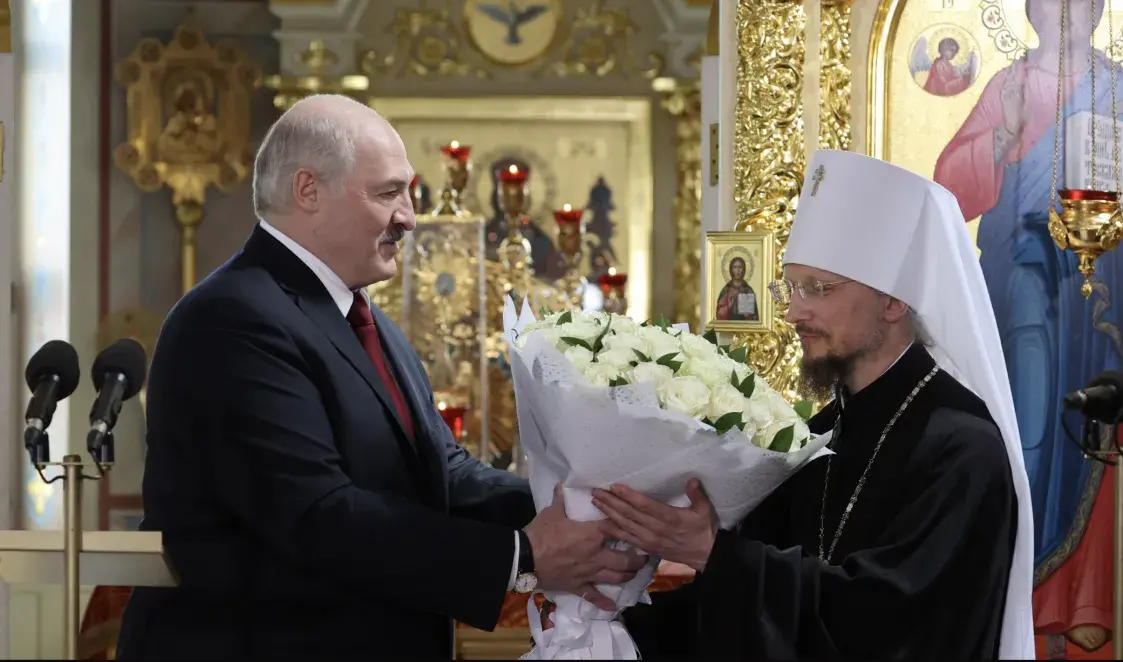
There’s a public bias that the authorities are more lenient towards Orthodox believers while applying more pressure to Catholics, Protestants, and other denominations. Vasilevič disagrees with this notion:
“This perception arises because there are simply far more Orthodox believers. First, monitoring them all is harder — it’s a greater volume of work.
Second, the arrest of individual priests doesn’t affect the Orthodox community as much. However, a small Greek Catholic Church with fewer than a couple dozen priests suffers proportionally more — even if only one priest is affected.
The authorities pursue any religious figure suspected of disloyalty. No one has immunity.
Security forces show no reverence — neither for a Catholic kśiondz nor for an Orthodox priest. Both can be tortured, humiliated, and abused,” she concludes.
